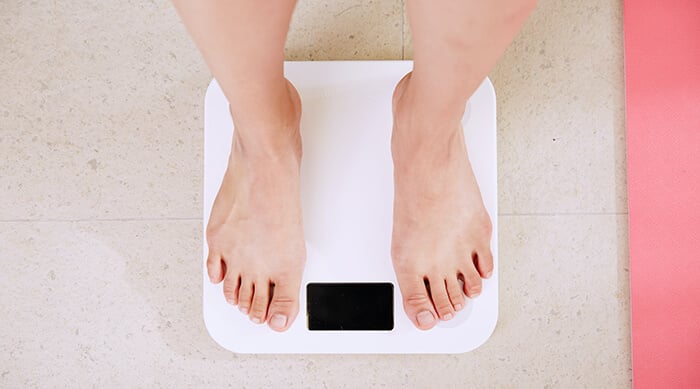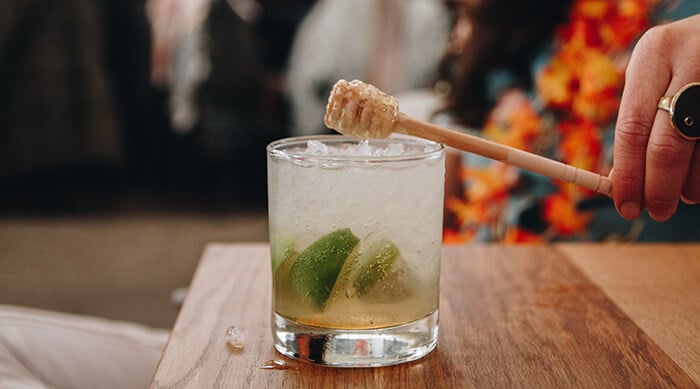The keto diet isn’t a new thing by any means. If you’re just getting into the world of low-carb, though, it can be hard to know what’s off-limits and how strict those rules really are.
Is wine keto? Most high-quality wine is keto-friendly, but wines with added sugar may throw you out of ketosis. Most wines aren’t considered high-carb, with about 3-4 grams of carbs in each serving. Red wines and dry white wines are your best bet.
Can you drink wine on keto? You can drink some wines on keto as long as they don’t increase you net carbs beyond your daily goal. People on the keto diet try to stay under 20-50 grams of carbohydrates per day, which can add up quickly if you’re not watching your serving sizes.
While a glass of wine here and there likely won’t break your keto diet, drinking alcohol does impact ketone production and not all wines are actually keto-friendly. Let’s talk about it.
Table of Contents
What is keto?
The ketogenic diet is a low-carb, high-fat diet that promises rapid weight loss and a variety of other health benefits. Fans of the keto diet say it improves your brain function and overall wellness by sending your body into a state of ketosis.
Ketosis is a metabolic state in which your body becomes very efficient at burning fat. When you drastically cut carbs, your body targets its glycogen stores. Those stores come from glucose, or sugars, in your diet.
If you’re cutting carbs and low on glycogen, your body turns to burning fat and creating ketones, a chemical in the liver, for energy. The result of deriving energy from ketones instead of glucose is weight loss (among other benefits).
Research on the keto diet as a long-term weight management strategy is mixed. There are many people who report impressive weight loss on this low-carb diet. Some researchers point to the diet as positive tool in blood sugar monitoring and diabetes management.
Other researchers warn that it can impact renal function and raise levels of low-density lipoprotein (LDL), or “bad” cholesterol levels along the way.
Note: We know wine, but we don’t know your body. Always talk to your primary care doctor before changing your carb intake or starting a new diet in general.
How Wine and Ketosis Interact
Drinking wine occasionally probably won’t interfere with ketosis, but it’s important to moderate your drinking if you’re watching your carbs. Water, tea, and coffee are the best keto-friendly beverages.
How often can you drink alcohol on keto? Techincally, you can drink every day on keto as long as you’re drinking low-carb or no-carb alcohol. Beer has more carbs than wine, while distilled spirits on their own have no carbs at all. Avoid mixed drinks on keto, as these are too high in sugar.
Following guidelines for moderate drinking is generally a safe bet, although any alcohol will have some effects. Many strict keto dieters take a hard pass on alcohol altogether to avoid setbacks.
There are 3 primary ways wine and ketosis may interact.
1. Alcohol pauses ketosis.
When you consume alcohol, your liver pauses creating ketones to process the incoming alcohol instead. A single glass of wine may not knock you out of ketosis completely, but it will slow down the process.
Your body is just too busy dealing with the alcohol in your bloodstream to worry about burning your fat and glucose stores.
2. Keto can lower your tolerance.
Low-carb diets like keto may have an effect on your alcohol tolerance. If there’s less glycogen in your bloodstream, the alcohol you drink is sent to your liver much faster. Your liver has no choice but to start metabolizing that alcohol.
The faster alcohol hits your liver, the faster you get drunk. That can mean you don’t realize how intoxicated you are until it’s too late. Expect nasty hangovers the next morning.
That rapid buzz can also lower your willpower to avoid carb-heavy foods. If you start drinking without a solid base in your stomach, you’ll feel hungry faster. All of a sudden, a plate of French fries sounds pretty good, and any semblance of a low-carb diet goes out the window.
3. Wines high in sugar may knock you out of ketosis.
One option here is to keep your wine consumption to a minimum so that you’re able to track your carbs closely. Choose types of wines that are low-carb and low-sugar and watch those serving sizes.
Another option is to seek out alcohol substitutes that won’t affect your progress. One of the benefits of not drinking alcohol is potential weight loss.
While red wine has some healthy properties, wine calories are still empty calories. Try alternatives to alcoholic drinks like non-alcoholic wines if you want to kick alcohol to the curb, whether temporarily or permanently.
Read Next: 12 Non-Alcoholic Wine Substitutes for Cooking With Wine
Keto-Friendly Wines
The best keto wines are dry wines, as these contain the least residual sugar. Keto wines should also be low alcohol (less than 13.5% ABV) to account for the way keto lowers your tolerance.
Some wines are marketed as low-sugar or low-carb, but you won’t always find the information you need on wine labels. That’s why we broke down some of the more popular varietals for you, whether you’re into red, white, or rosé.
Red Wines
Choose a light-bodied, dry red wine as your red wine of choice on a keto diet. Bolder reds with a higher alcohol content typically have more residual sugar and a higher carb count.
Here’s a breakdown of carbs (g) in each type of red wine per serving:
- Pinot noir: 3.4
- Merlot: 3.7
- Cabernet sauvignon: 3.8
- Shiraz: 3.8
- Syrah: 3.8
- Chianti: 4
- Grenache: 4
- Malbec: 4.1
- Zinfandel: 4.2
- Burgundy: 5.5
White Wines
Dry wines, which include primarily white varietals, are usually low-carb wines. You won’t get the same health boosts as red wines, but you’ll have an easier time watching your carb count with low-carb whites.
Here are the carb (g) count per serving for each white wine:
- Prosecco: 2
- Pinot grigio: 3
- Sauvignon blanc: 3
- Chardonnay: 3.2
- Gewürztraminer: 3.8
- Vinho verde: 3.8
- Pinot blanc: 4
- Chenin blanc: 4.9
- Dry riesling: 5.5
Sparkling wines fall somewhere in the middle of the list. Most brut champagnes have about 4 grams of carbs per serving. An extra brut variety will have an even lower carb count.
Quick note: “Brut” means “dry.” The dryer the wine, the lower the residual sugars and the lower the carb count.
Rosé Wines
The carb content of rosé wine depends on the wine style and grape variety used in the production of that wine. Rosé wines aren’t made out of one specific grape.
Grenache, sangiovese, pinot noir, and syrah are all common grape varietals used in the production of rosé wine. Choose a dry rosé made from one of these grapes if you’re watching your carbs for about 2.9 carbs per serving.
Sweet and sparkling varieties of rosé won’t do any good for your low-carb diet. A pink moscato, for example, starts around 8 grams of carbs per serving. Some sparkling rosé wines weigh in at over 15 grams of carbs.
Wines to Avoid
Avoid sweet wines and dessert wines if you’re going for max ketosis. Cheap sweet wines may even have added sugar to reduce acidity or account for rapid fermentation.
Fortified wines aren’t keto-friendly, either. These wines are mixed with spirits like brandy and have high ABV and high sugar content.
Here are a few wines to avoid and the carbs (g) they contain per serving:
- Sweet white moscato: 11
- Ice wine: 12
- Sherry: 12
- Madeira: 20
- Port: 20
Why does wine have carbs?
The carb content in wine is directly related to residual sugars. During the fermentation process, the natural sugars in wine are broken down by added yeast. Those sugars turn into alcohol and carbon dioxide. Any sugars left behind are residual sugars.
The higher the sugar content in a wine, the higher the carb count. Some of the lower quality winemakers add grams of sugar at the end of their bottling processes to adjust the flavors of their wines.
That’s not good for anyone watching their carbs, their sugar levels, or treating wine as a functional beverage. Some wines will use the term “brut nature” to indicate no additional sugar was added.
Will I lose weight if I drink wine on keto? Moderating carbs and alcohol allows you to maintain weight loss on keto while still drinking wine. To maintain ketosis, limit your daily net carb intake to 20-50 grams, and drink alcohol in moderation.
How many glasses of wine can you have on keto? General guidelines suggest a standard 5 oz glass of wine for women and 2 glasses of wine for men.
Compared to other alcoholic beverages, wine is generally a good low-carb option. Distilled spirits like vodka and gin have zero carbs, but mixed drinks can easily break any keto diet. Stick to sparkling sodas if you need a low-carb mixer.
Calculating the Carbs in Wine
Most wine labels don’t include the total carb count to make it easy for people to calculate. If you had all of the information handy, you could calculate the carbs on your own using the following formula:
Net Carbs (g) = Total Carbs - Fiber - Half the Carbs from Sugar Alcohols
Don’t worry — it made our brains hurt, too.
You likely won’t know much about the residual sugars in a wine just by looking at a label. Here are a few tricks to help you navigate wine carbs without heavy math:
- Consider wine style. Dry red and white wines have less residual sugar than sweet wines or dessert wines.
- Check out the ABV (alcohol by volume). Wines with a higher ABV are typically higher in carbs, but the difference isn’t big until you get to fortified wines.
- Choose a higher-quality wine. You’re more likely to see added sugars in lower-quality wines. If it’s cheap and super sweet, it’s probably high-carb.
Read next: Wine Nutrition Facts: Calories, Carbs, Sugar & Sodium
Keto Wine Alternatives
For an alcoholic alternative to wine you can drink a hard liquor with club soda or a keto-friendly mixer. Non-alcoholic alternatives include alcohol free wine, soda alternatives like diet soda or prebiotic soda, and freshly pressed juices.
If the keto diet is part of your efforts to get healthier, it makes sense to consider drinking habits in general as part of your wellness journey. Surely non-alcoholic wine is a low-calorie, alcohol-free alternative for wine lovers who want real wine.
Try our crisp non-alcoholic sauvignon blanc if you’re looking for a versatile, warm weather white. Our non-alcoholic pinot noir gives you all the benefits of red wine without any of the negatives that come with alcohol.
Sources
- Ketosis, ketogenic diet and food intake control: a complex relationship
- Nutritional Ketosis with Ketogenic Diets or Exogenous Ketones: Features, Convergence, and Divergence
- Ketogenic Diet
- Ketogenic diet aggravates kidney dysfunction by exacerbating metabolic disorders and inhibiting autophagy in spontaneously hypertensive rats
- A Ketogenic Low-Carbohydrate High-Fat Diet Increases LDL Cholesterol in Healthy, Young, Normal-Weight Women: A Randomized Controlled Feeding Trial
- The inhibition of gluconeogenesis following alcohol in humans



![7 Hangover Cures That Work [Plus Deets on Hangover-Free Alcohol]](https://dropinblog.net/cdn-cgi/image/fit=scale-down,width=700/34240221/files/featured/hangover-cure-header.jpg)
